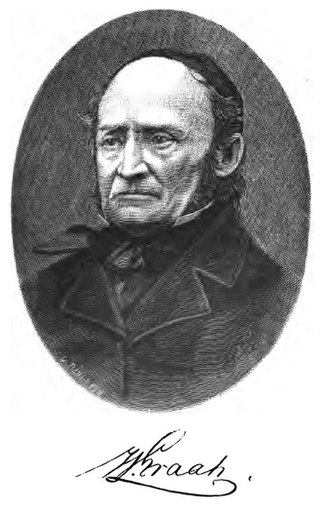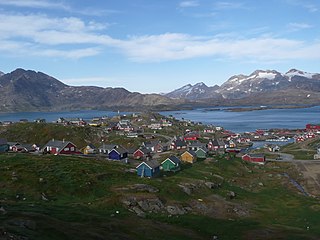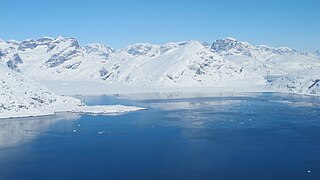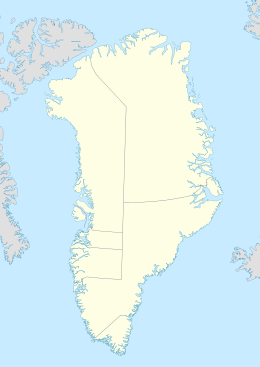
The British Arctic Expedition of 1875–1876, led by Sir George Nares, was sent by the British Admiralty to attempt to reach the North Pole via Smith Sound on the west coast of Greenland.

Clavering Island is a large island in eastern Greenland off Gael Hamke Bay, to the south of Wollaston Foreland.

The German North Polar Expeditions were a short series of mid-19th century German expeditions to the Arctic. The aim was to explore the North Pole region and to brand the newly united, Prussian-led German Empire as a great power. In 1866, German geographer August Petermann wrote a pamphlet strongly advocating German participation in the international quest for the North Pole, which stimulated a German expedition.

Wollaston Foreland is a peninsula in King Christian X Land, East Greenland. Administratively it belongs to the NE Greenland National Park area.
Sabine Island is an island to the northeast of Wollaston Foreland, previously known as Inner Pendulum Island. It is in the Northeast Greenland National Park area.

Germania Land or Germanialand is a peninsula in northeastern Greenland. Despite the high latitude it is largely unglaciated.

Carl Christian Koldewey was a German Arctic explorer. He led both German North Polar Expeditions.

Wilhelm August Graah (1793–1863) was a Danish naval officer and Arctic explorer. Graah had mapped areas of West Greenland when he, in 1828–30, was sent by King Frederick VI of Denmark on an expedition to the unmapped eastern coast with the purpose to search for the lost Eastern Norse Settlement.

Iivit or Tunumiit are Indigenous Greenlandic Inuit from Iivi Nunaa, Tunu in the area of Kangikajik and Ammassalik, the eastern part of Inuit Nunaat. The Iivit live now mainly in Tasiilaq and Ittoqqortoormiit and are a part of the Arctic people known collectively as the Inuit. The singular for Iivit is Iik or for Tunumiit version it is Tunumiu.

Umivik Bay, also known as Umiivik and Umerik, is a bay in King Frederick VI Coast, southeastern Greenland. It is part of the Sermersooq municipality.

King Frederick VI Coast is a major geographic division of Greenland. It comprises the coastal area of Southeastern Greenland in Sermersooq and Kujalleq municipalities fronting the Irminger Sea of the North Atlantic Ocean. It is bordered by King Christian IX Land on the north and the Greenland Ice Sheet to the west.
Iluileq is a fjord in the King Frederick VI Coast, Kujalleq municipality, southern Greenland.
Kangerluluk, meaning 'the awful fjord', is a fjord in the King Frederick VI Coast, Kujalleq municipality, southern Greenland.
Avaqqat Kangerluat, also known as Avarqqat Kangerluat, Avaqqat Kangerlua and Puiagtoq Fjord, is a fjord in the King Frederick VI Coast, Kujalleq municipality, southern Greenland.

Odinland, also Odinsland in the Defense Mapping Agency Greenland Navigation charts, is a peninsula in the King Frederick VI Coast, southeastern Greenland. It is a part of the Sermersooq municipality.
Cape Walløe, also known as Kangeq and Kangerssiuasik, is a headland in the North Atlantic Ocean, southeast Greenland, Kujalleq municipality.
Kangerluk, also known as Kangerluluarak, is a fjord in the King Frederick VI Coast, Kujalleq municipality, southern Greenland.
Cape Møsting is a headland in the North Atlantic Ocean, southeast Greenland, Kujalleq municipality.

Cape Moltke is a headland in the North Atlantic Ocean, southeast Greenland, Kujalleq municipality.













